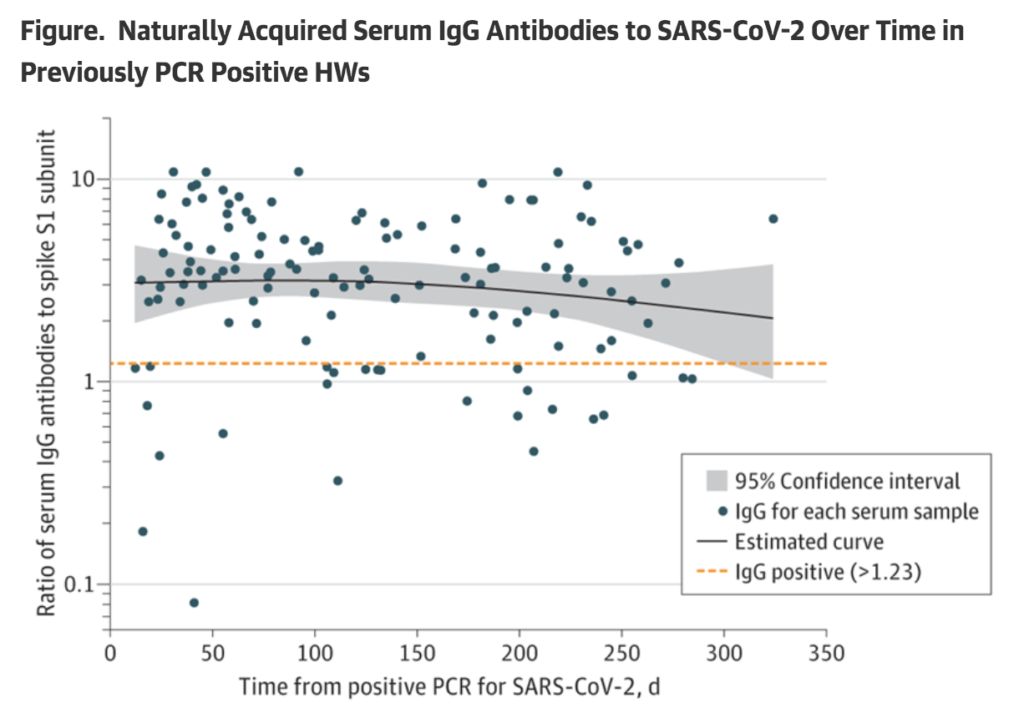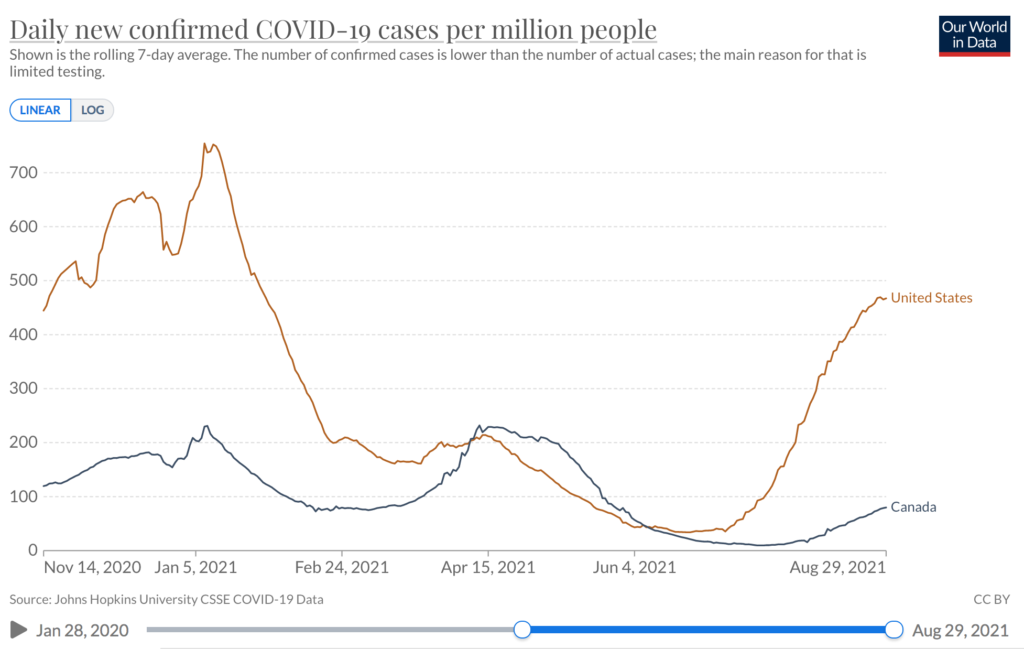Vaccines
This Research Letter says that six to ten weeks after the second dose, antibody levels were higher in people who got Moderna doses than Pfizer doses. People who also had gotten sick with COVID-19 had higher antibody levels than those who had not. Younger people had more antibodies than older people.
This preprint says that healthcare workers who had COVID-19 disease had high antibody levels for (at least) ten months.

This thread talks about waning immunity in Israel, and how they have way more hospitalizations per case than the UK. In the comments, there are several possible reasons posited:
- The dose spacing in the UK is/was longer than in Israel.
- Israel got dosed first, so they have had more time for the vax to wane.
- Israel counted having the disease as equivalent to getting one dose, while the UK gave everybody a second dose. (I don’t know if this is true.)
- In the UK, they have programs to help people with COVID at home, so there are fewer hospital admissions. (I don’t know if this is true.)
A Pfizer press release says people have three times as many antibodies after a third dose than after two doses. (Note, however, that usually when people talk about antibody levels, they seem to think 10x differences are interesting. I’m not sure, but I think 3x might not be as impressive to an immunologist as to a lay person.)
This paper from Israel says that people over 60 who were vaccinated in March 2021 were 1.6x more protected from infection and 1.7x from hospitalization than those who were vaccinated in January 2021. (Note: they vaccinated in age-order, so the people who were vaccinated in January were quite a bit older than those vaccinated in March. I didn’t read the paper carefully, but in my quick skim, I didn’t see them control for age.)
This paper from Israel says that a third shot brings protection up to 95%, similar to a recent vaccination against COVID Classic.
Immunocompromised
This preprint says that, contrary to what was feared, autoimmune diseases do not make people more susceptible to COVID-19 per se. Some immunosuppressive drugs (especially cytokine inhibitors) might even lower the risk of severe COVID-19. However, there are some drugs (glucocorticoids and potentially B-cell-depleting treatments) which do make COVID-19 worse.
Transmission
This preprint reports that it took five times the number of virus particles to give monkeys a fever as it did to give them a COVID-19 infection detectable on a nasal swab.
Long COVID
This article reports that COVID-19 can cause erectile dysfunction, and that COVID-19 viruses have been found in penile tissue months after the COVID-19 infection.
Mitigation Measures
This article says that the US State Department has downgraded the safety of Canada as a destination, changing it to “Reconsider travel”. Pffft. We still have way lower case counts per capita than the US.

Meanwhile, the UK dropped Canada from its list of dangerous places. If you arrive in the UK from Canada, you no longer need to quarantine.
Recommended Reading
This paper looked at what types of antibodies (IgA or IgG) in the blood and in saliva by: people who had had COVID-19, who had gotten a mRNA vax, and who had gotten the J&J. This Twitter thread explains why it’s important, read the thread.
